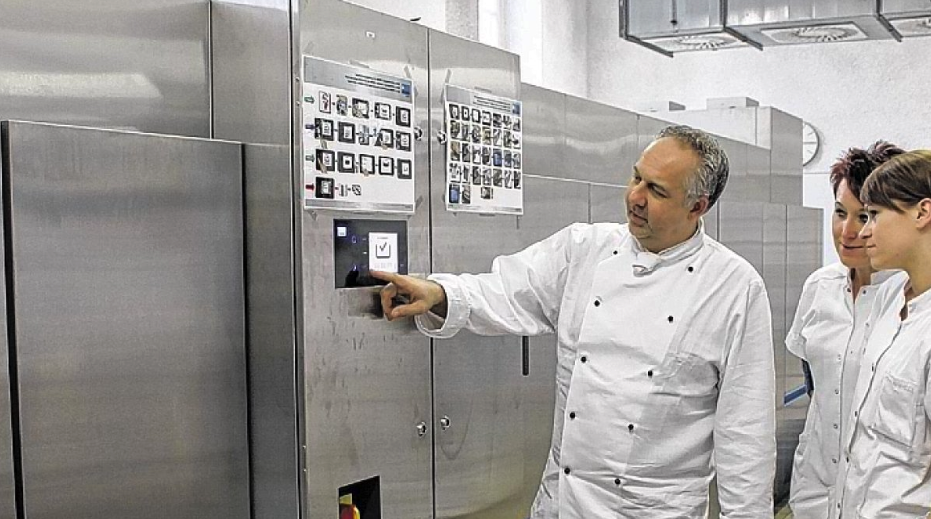Chemical stress
Chemical stress on porcelain

Since energy - including the heating of water - has become increasingly expensive, many manufacturers of detergents have been researching chemical processes that reduce thermal heating without compromising hygiene. To put it simply: many industrial dishwashers no longer achieve sterility of the wash ware through temperature, but through chemical treatment of the dishes.

Although this financial advantage benefits the business in terms of operating costs, it is clearly detrimental to the longevity of the wash ware - especially at the expense of glass and porcelain - which has to undergo such a cleaning process several times a day. Since the use of such "chemical clubs", we in the porcelain industry have been familiar with the corrosion of glazes. If a glaze corrodes, the product shows a dull, worn appearance, as if the surface has been irregularly abraded. If the glaze has been worn away, food residues with irregular staining change the clean character of the porcelain.
This type of damage is not a reason for complaint as, in case of doubt, the company itself cannot provide evidence of proper and professional use. Even a 10% overdose of washing-up liquid can considerably shorten the service life of porcelain in individual cases.
Another problem is the inadequate removal of grease. Repeated use of the boiler water in a commercial dishwasher tends to carry long and short-chain fats with it, which are then deposited on the porcelain. These streaks and shadows settle on the ware and cannot be removed with conventional detergents. They form a breeding ground for further visual and hygienic changes and bind calcareous, mineral or salty residues from the water on the crockery. Such rinsing residues lead to further damage due to abrasion and scratching.
Recommended use to avoid chemical contamination of the crockery
A few simple measures can prevent the corrosion of porcelain glazes and the matting of glass and plastic surfaces.
- Always follow the operating instructions for your dishwasher.
- Only use the detergents recommended by the manufacturer.
- Ensure adequate water softening.
- Instruct the staff properly.
- Display the operating instructions clearly on the dishwasher.
- Never wash black crockery together with other wash ware.
- Empty the boiler water regularly.
- Quarterly inspection of the detergent dosage by a specialist.
Product knowledge - A request to our readers!
Since 1998, we have been cultivating our product knowledge out of a passion for porcelain and the endeavour to share our knowledge about this beautiful and exciting material. In more than 20 years, our information pages have grown into a free online encyclopaedia of porcelain knowledge and now serve as a helpful reference work for dealers, end customers, vocational schools and even competitors. In times of increasingly important reviews on the Internet, we therefore ask you to write us a small review on Google. In this way, you will also help us to address topics that have not yet been dealt with and to constantly revise this knowledge database. Thank you very much.

